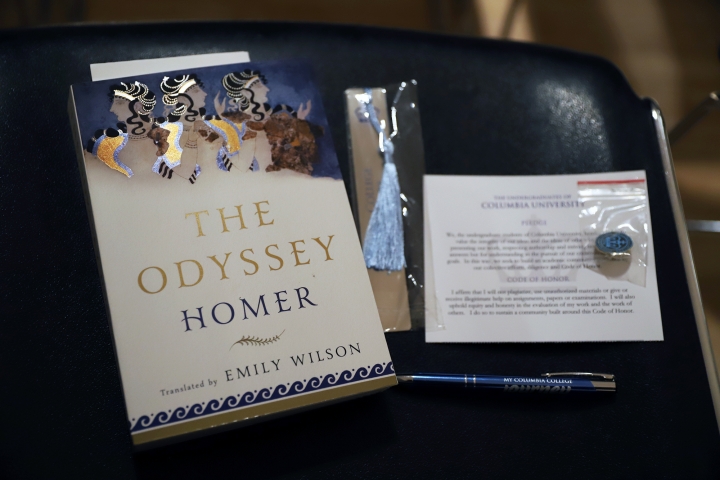
Want assistance with managing your time? Need someone to help you create a weekly study schedule? Request a meeting with a Peer Academic Skills Consultant.
Go to office hours and get to know faculty members and teaching assistants. Make a habit of going to office hours throughout the rest of the semester, even when you are doing well in the class.
Through office hours you can:
Get to know your professors on a personal level. Doing so will help you maintain a connection to your studies and Columbia. It also allows you to review ideas for assignments and discuss your academic aspirations.
Gain more connection to the class and course content while demonstrating your commitment to the learning process. If you find yourself struggling with the material, want to review assignments, or just want the chance to work alongside fellow students, set up an online tutoring appointment or request to join a Study Group. Find times and locations online.
Build a relationship with your Berick Center for Student Advising (CSA) adviser. Even if you do not feel you may need their help now, already having a positive connection with your CSA advisor may help you feel more comfortable seeking advice from them when you need it most. Your adviser is still available to help you with any personal or academic hardships. Set up meetings on Zoom to discuss any questions you may have.
Review the Academic Calendar deadlines for your school.
Keep track of different academic deadlines, such as add/drop, withdrawal and certain academic petitions. Doing so will reduce stress around those deadlines and will help you keep on top of your responsibilities as a student.
Organize your schedule. It is important to keep a schedule. Doing so will help you be aware of upcoming requirements and reduce the desire to email your professor just before your assignment is due. Instructors are less likely to give an extension on short notice, and they are more likely to be understanding if you explain any potential conflicts or complications well in advance.
Don't wait until the last minute to start writing papers or working on assignments. Even though library access is restricted to online resources, you can still use the Ask a Librarian service at Columbia Libraries to get research support in finding credible online sources and learn how to use the citation management software, Zotero. Make an online appointment with the Writing Center for support on all areas of the writing process from brainstorming to outlining revisions on your final papers.
Learn about your campus resources before you need them, as available on Live Well | Learn Well website. Reach out to your instructor, TA and CSA adviser if you need more help or disability accommodations.
When in doubt about academic expectations, email your professors or TAs.
Speak up and ask for help! Your CSA adviser is just one member of a community of advisers available to you at Columbia. When you have a personal concern, reach out to whomever you feel most comfortable talking — a Professor, Counseling and Psychological Services, Student and Family Support and many others.
Remember your integrity values. It can be easy to rely on online resources when taking an online or in-person class. In some cases, that can be OK, and in others you may be breaking the Columbia honor code and the pledge that you made upon coming to Columbia. If you are unsure which situation this is, ask yourself the following questions:
Is this a reputable source? Can I rely upon the information that is listed here?
Why am I looking for help outside of my instructor, TA, fellow classmates or class materials? Is this something that I could reasonably take to one of them for assistance?
Am I looking for a model of how to do something, a review of the information, a different way of answering my question, or something I can copy and paste (or only slightly reword) into my assignment?
Is this a resource that I can cite in my assignment? Is my use of this resource something that my professor or TA would condone?
Where else could I go for help where I know that I can depend upon the reliability of my answer and I won’t be in danger of potentially breaking the honor pledge? Has my professor or TA given me examples of additional materials to reference for help (or would they do so if I asked them)?
What do I need from my instructors or the Columbia community to make sure that I abide by my own commitment to integrity and original work?
Ask if you don’t know. If the answers to any of the questions above are not clear to you, or if you want to talk about a different situation that touches on academic integrity, please do not hesitate to reach out and ask at ugrad-integrity@columbia.edu